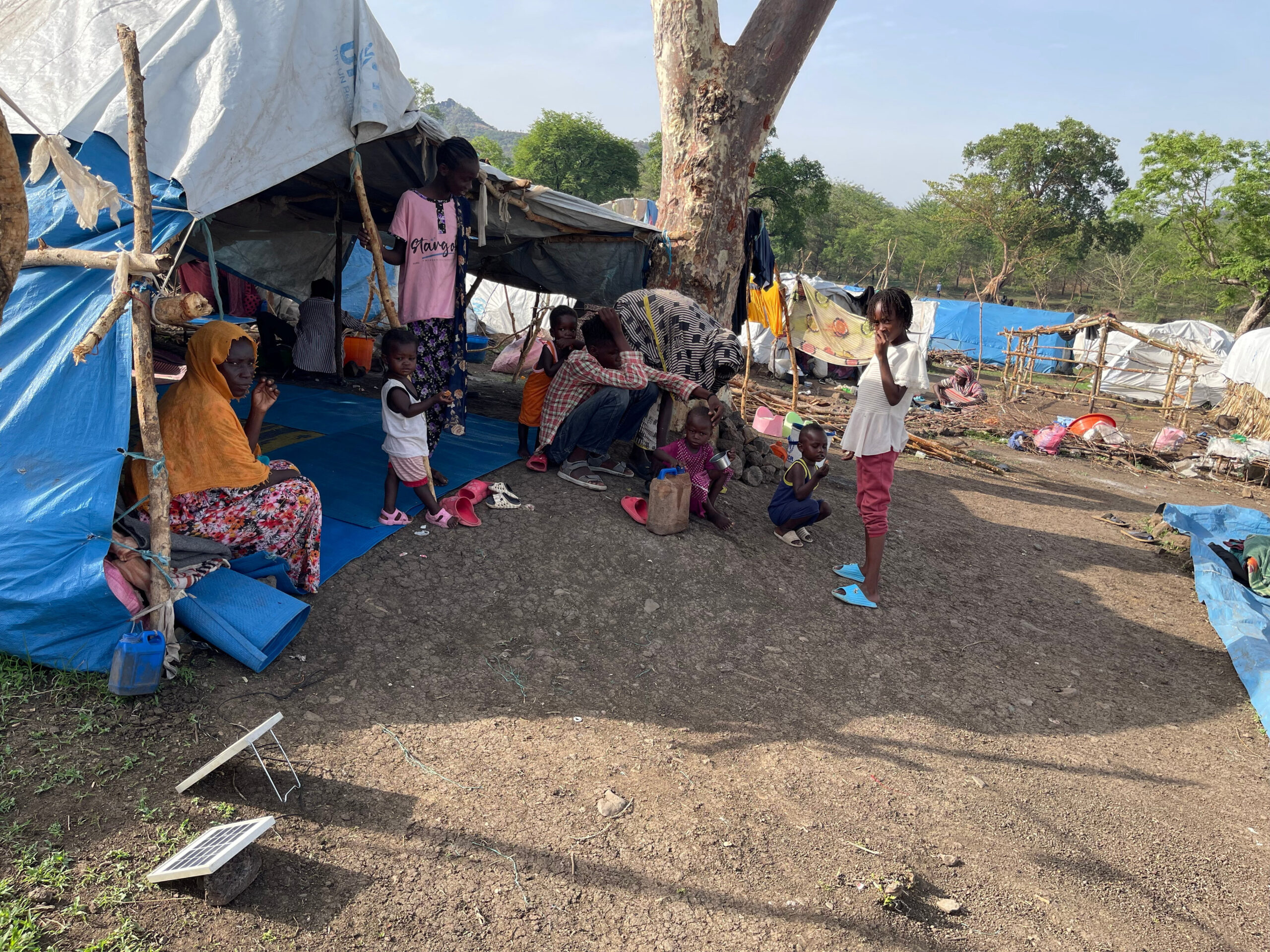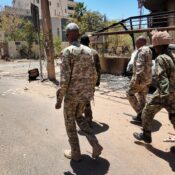
Attacks force Sudanese refugees into a jungle in Ethiopia
Refugees from the civil conflict in Sudan who escaped into neighboring Ethiopia said they were forced to leave again and sought refuge in roadsides and forests after gunmen repeatedly attacked and left their tents covered with bullet holes.
Since repeated attacks last month, largely by bandits, over 8,000 people have left the UN-established Kumer and Awlala refugee camps in Ethiopia’s northern Amhara region, camp representatives told Reuters this week.
They had initially escaped conflict that broke out in April 2023 between the paramilitary Rapid Support Forces (RSF) and the Sudanese army, which resulted in charges of ethnic cleansing in Darfur and severe starvation in several areas of the country.
One young man told Reuters over the phone, “We left our country because we were scared of the stray bullets from the army and RSF.”
“We sought refuge in Ethiopia to save our lives, and now we are facing the same danger.”
He added that after fleeing the camps and the capital city of Khartoum in Sudan, he was currently seeking safety in a forest in the Amhara region, where militias are engaged in combat with Ethiopian federal government troops in a separate conflict.
Images shared on Telegram and WhatsApp showed numerous individuals, many of them youngsters, sitting outside beside a roadside, as well as improvised homes constructed of tarp and branches. The images’ date and location were verified by Reuters.
The young man spoke anonymously, as did others present, expressing fear of retaliation. Their stories brought to light the limited options available to Sudanese refugees seeking safety in nations grappling with their own crises and shortages.
Requests for comment from the Ethiopian government’s Refugee and Returnee Service were not answered. Despite its limited resources, it said at the beginning of May that it was working with refugees to address safety and service problems.
UNHCR, the United Nations organization for refugees, directed Reuters to a statement released last week that mentioned security events and a “deeply challenging” security environment, but it didn’t provide any additional information.
According to the statement, Ethiopian police have stepped up their patrols, are still offering services inside the two camps, and are urging the approximately 1,000 people who live outside of Awlala to come back. Regarding the differing estimates of the numbers involved, no one was immediately ready to provide commentary.
Over 8.9 million people have been forced to evacuate their homes as a result of the war in Sudan, making it the biggest displacement disaster in history. Over 122,000 of the 2.1 million individuals who departed the nation have settled in Ethiopia, as per the International Organization for Migration.
One of the employees of the relief organization Medical Teams International, which has maintained a clinic close to the camps in Ethiopia, was slain last week when gunmen opened fire on a truck.
“DETATROPHE FOLLOWING DETATROPHE”
According to refugees who were now taking refuge outside of the camps, violence against people occurs often.
“To wash their clothes and take a bath, people must travel to the valley. However, they face everyday robberies, beatings, or kidnappings,” a camp leadership committee member stated.
“We are facing catastrophe after catastrophe,” they declared.
The disease has spread to Kumer, where there is just one doctor available to treat patients, according to a number of migrants and an unnamed charity worker. Less than two weeks pass between the United Nations World Food Program’s monthly food deliveries, as two refugees told Reuters.
About 6,000 people from Kumer and Awlala set off together on May 1 to walk 170 kilometers (105 miles) to the UNHCR’s headquarters in Gondar, the capital city of Amhara, to express their disapproval of their living conditions, three refugees told Reuters.
The three refugees claimed that after being stopped by the police, they took sanctuary in a forest close to the Awlala camp.
When supplies ran low, many of them started a 10-day hunger strike over the situation. They ended it when donations from Sudanese abroad arrived—the only help they had received thus far, according to the three.
After armed individuals started shooting at the camp on May 1, some 2,000 people who were still at Kumer ran onto a main road, according to a committee member and another refugee. When they later returned, they claimed to have discovered gunshots through the tents, which led them to believe the guys were trying to eject them.
According to unnamed aid workers, insufficient funding and insecurity have significantly hindered relief efforts.
Just $400,000 in financing for Sudanese refugees in Ethiopia, according to the U.N., has been provided out of a plea for more than $175 million.
All Categories
Recent Posts
Tags
+13162306000
zoneyetu@yahoo.com



